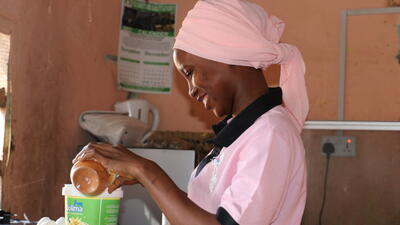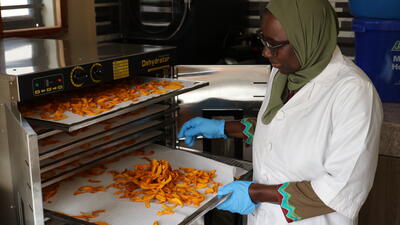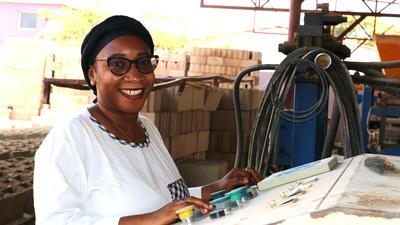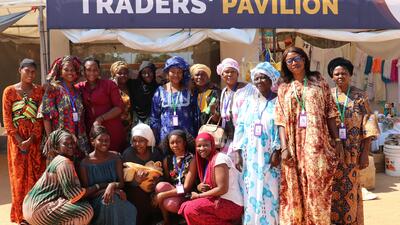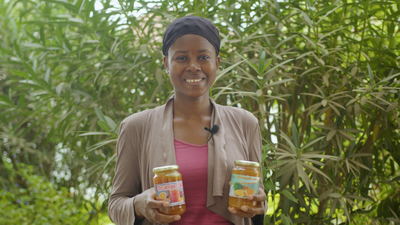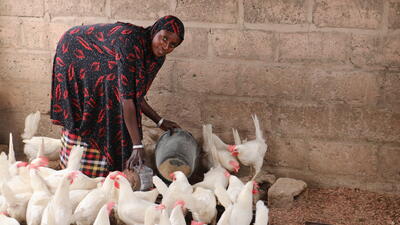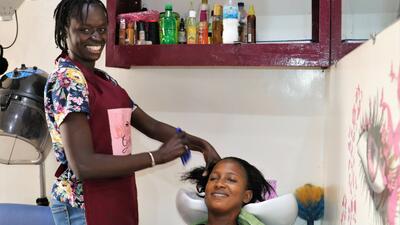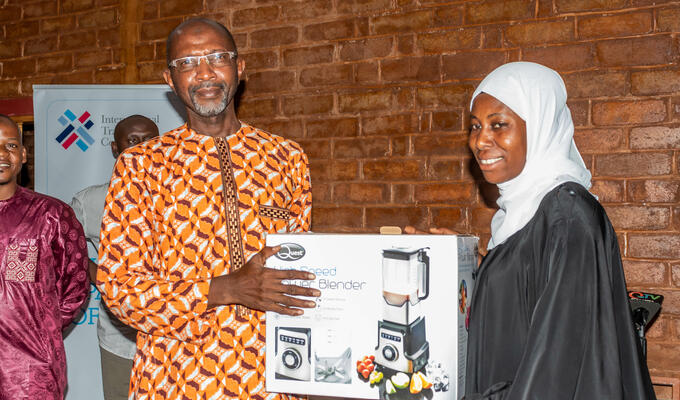
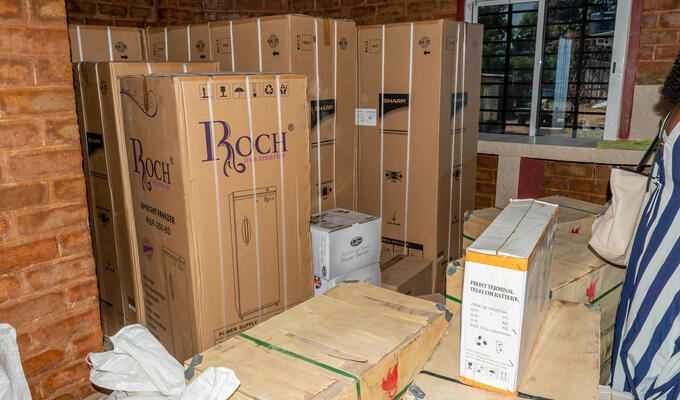
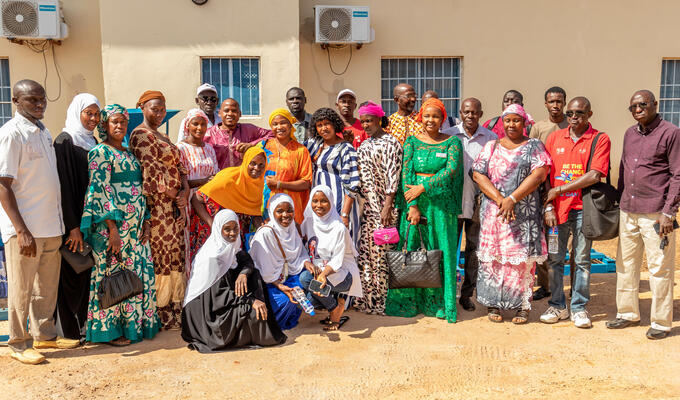
ITC supports Gambian entrepreneurs with food processing equipment and machines
In The Gambia, food processing plays a crucial role in the economy, linking farms with services that turn crops into higher-value products for sale locally and abroad. Food processing can create jobs and earn higher incomes for Gambians, especially women and young people in rural areas.
That in turn helps reduce poverty, while also improving food security. Processing food ensures that farmers minimize losses from their harvests. And greater trade in food products leads to economic growth.
Despite these opportunities, the food processing industry faces challenges on many fronts. Many small businesses in The Gambia lack the skills, machines, and equipment to process food products that meet safety standards and that can compete at larger scales.
The construction of the Senegambia Bridge made travel easier, but crippled the market that used to serve passengers waiting at the old ferry crossing. To support traders who used to work in that market, 30 youth and women food processors underwent training earlier this year in North Bank Region and Lower River Region.
The training was supported by the International Trade Centre (ITC), in strong partnership with Mansakonko Area Council, the United Nations Population Fund Gambia, and the Gambia Association of Local Government Authorities.
Equipment and training
This initiative aimed to support economic development by reducing post-harvest losses and boosting incomes. As the next step, ITC further provided equipment to 18 of the trainees to enhance their competitiveness and promote growth.
During the handing-over ceremony of the equipment and machines, ITC technical adviser Yusupha Keita said: ‘The equipment and machine support seeks to enhance the capabilities of local food processors to enable them to scale up their production and meet market demands to support income generation, job creation and economic growth.’
The Deputy Chairman of Mansakonko Area Council, Yaya Saidykhan praised the initiative.
‘The support is timely – it has come at a time when the local food processors have gained knowledge in agro-food processing and are ready to put it into practice to improve their livelihood,’ he said. ‘I am therefore urging the beneficiaries to make good use of it. At our level, we remain committed to working with partners to support entrepreneurs in our region.’
Ebrima Drammeh, Deputy Governor, of Lower River Region, also expressed gratitude. ‘This initiative is life-changing,’ he said. ‘The support will allow the local food processors to process raw agricultural food products and sell at good prices ultimately improving their livelihood.’
About the project
The initiative is supported by the United Nations Human Security Trust Fund through the project on Improving the Livelihoods of Vulnerable Women and Youth around the Senegambia Bridge, implemented by the International Trade Centre. Under the project, UNFPA and ITC are also building a hospitality training centre and an entrepreneurship development centre in the region to support skills development, job creation and entrepreneurship. In tandem, ITC has supported young people and women in the abovementioned regions with poultry birds.





